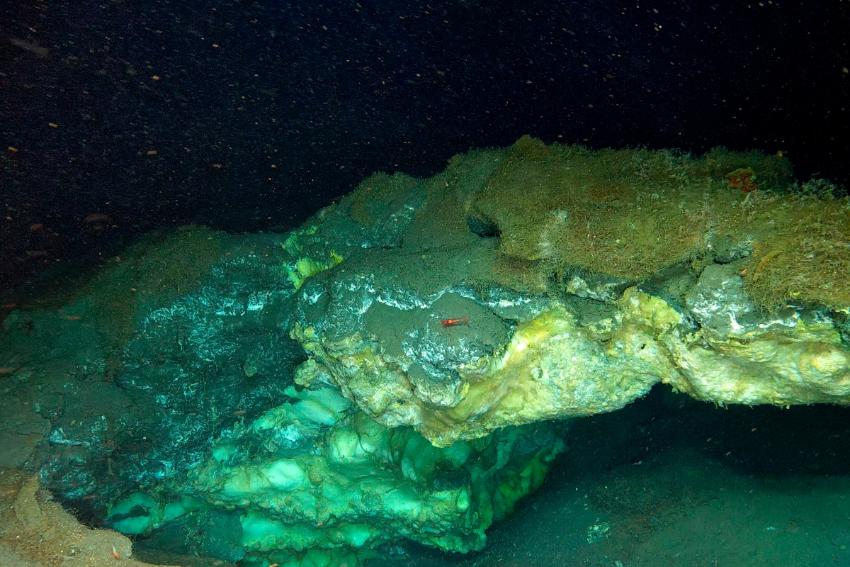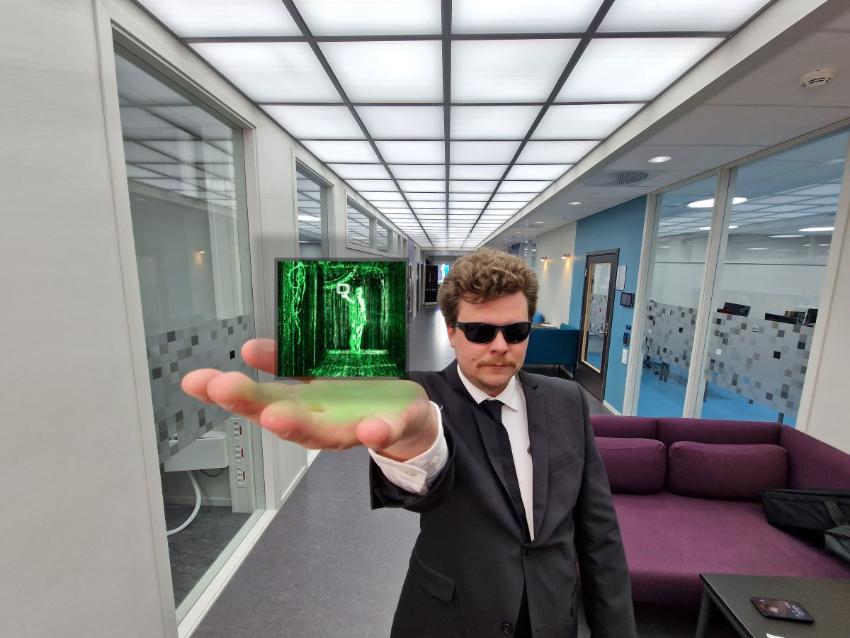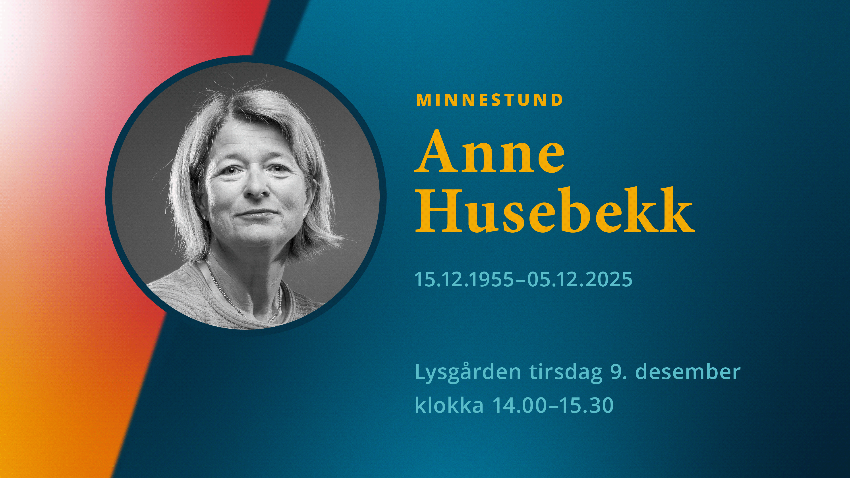Minister of Foreign Affairs launches new research prize
The International Mohn Prize for Outstanding Research Related to the Arctic (The Mohn Prize) has been established in collaboration by Academia Borealis The Academy of Sciences and Letters of Northern Norway (NNVA), the Tromsø Research Foundation (TFS) and UiT The Arctic University of Norway (UiT). The prize, which is worth NOK 2 million (approximately € 210 000), will be awarded biennially. The purpose of the Mohn Prize is to recognise excellence in research related to the Arctic. Furthermore, the prize aims to highlight issues of particular relevance to the future development of the Arctic, and help put these issues on the national and international agenda.
Read more about The Mohn Prize here

Knowledge development
The launch was hosted at Campus Tromsø by the Rector of UiT, Anne Husebekk, who is also Chair of the Steering Committee, and the Minister of Foreign Affairs, Børge Brende. The Mohn Prize can have major implications for policy decision-making processes related to the High North and the Arctic.
“The farther north you move, the more challenging it is to balance different interests. Consequently, policy decisions related to the High North must be knowledge-based. These areas include vulnerable nature and complex ecosystems. The Mohn Prize combined with an increased focus on research related to these areas is thus extremely important,” says Brende.
In relation to Arctic research, what is your impression of what are the main topics of conversation are when you attend major meetings around the world?
“There’s an increasing interest in what is happening in the north. I get many questions about the Arctic; what impact will climate changes have and what resources are there in the north?”
Brende also believes the Barents Sea will play a greater role in the future, particularly when it comes to seafood production, since the UN estimates the global population will be 9.7 billion in 2050.”
“There is major interest in these resources. Consequently, we can’t rest on our laurels so we must focus on knowledge in the north,” says Brende.
Background
The Mohn Prize is named after Henrik Mohn (1835-1916) who, in addition to being considered the founder of Norwegian meteorology, provided several Norwegian Polar expeditions (including Nansen’s expedition on the Fram) with meteorological equipment. Henrik Mohn was the inaugural director general of the Norwegian Meteorological Institute. Moreover, he was the great granduncle of Trond Mohn, who is a major donor to TFS. The prize also recognizes the significant contribution Trond Mohn has made to UiT. Overall, Mohn has donated NOK 400 million to research and research-promoting measures at UiT.
“Trond Mohn is honoured that this prize is proposed in his name and that it is in keeping with matters close to his heart: The High North, research, talent, competition and quality, as well as making a difference for people and the future,” says the Chair of TFS, Sveinung Hole.
TFS adds that the establishment of the Mohn Prize is an excellent way to raise awareness of issues of importance for the Arctic and the High North, and that funding of such a prize is in keeping with the foundation’s purpose.
“With the establishment of the Mohn Prize, outstanding research on Arctic issues will be linked even more to Norway and Tromsø, making UiT an even more natural choice for young talent with high ambitions. Even though there are already many prizes, we are convinced that over time the Mohn Prize will become one of the most important and prestigious in research,” says Hole.
“A prize such as this is one of several measures that can contribute to highlighting topics that are key to understanding processes and developments in the Arctic,” says UiT Senior Adviser Geir Gotaas.
The relevance of an Arctic prize
The term ‘The High North’ (or alternatively ‘circumpolar North’) is often used to describe the area between the North Pole and the Arctic Circle, including the Barents Sea and the Barents region. Arctic research has been taking place in, and based out of Tromsø, for more than a century. Following the decision of the Norwegian Parliament in 1968 to establish the University of Tromsø, Tromsø has built world leading competence in Arctic natural and social sciences. The international interest in the Arctic is largely motivated by the region’s rich natural resources.
“Through this development, the region has gained increased strategic and economic interest nationally as well as internationally. Increased focus highlights the need for greater attention on the living conditions and prospects for the population in the entire region,” says Synnøve des Bouvrie from NNVA.
In a broader perspective, the Norwegian Government has described the High North as Norway's most important foreign policy area: “At the same time, the Government has the goal of making Northern Norway one of the country’s most sustainable and creative regions. As such, High North policy is an interaction between foreign and domestic policies,” writes the Norwegian government website Regjeringen.no.
Above all, the unique features of the Arctic are that the nature is characterized by snow, ice, low temperatures and large seasonal variations in light and dark. The interest in the area is based on access to natural resources, trade routes and increased human activity. The Mohn Prize will contribute towards further development and the development new knowledge that will create deeper and increased understanding of the High North and the Arctic.
“The unique natural environment has given rise to biology that cannot be found elsewhere, and has been a driver for the development of unique cultures in the Circumpolar North. Climate change, and the impact these changes have on nature and culture, is today probably what makes the region particularly relevant: The polar regions (the Arctic and Antarctica) warm up faster than areas at lower latitudes, and the resulting changes are of significance regionally and globally. The Arctic is also a region rich in resources (both renewable and non-renewable), which makes the region of interest to different players both within and outside the Arctic,” adds Gotaas.

Reduction of conflict situations
Tromsø has been the permanent secretariat of the Arctic Council since 2013. More recently, the Arctic Economic Council and the Arctic Council Indigenous People’s Secretariat have also been established in Tromsø. Reindeer husbandry, agriculture and small-scale fisheries are still important both economically and culturally in many indigenous communities in the Arctic.
In a case proposal dated 1 February 2017, the University Management writes that conflicts of interest or potential conflicts associated with exploitation of natural resources will increase over the coming years. Can you expand on this, and how increased research can possibly reduce such conflicts?
“The fact that the ice – sea ice as well as glaciers – in the north is melting means that areas that were previously inaccessible for commercial activities, such as fishing and mining, may become accessible in the future. This opens up interesting industrial and economic opportunities, but this also creates potential conflicts between traditional and “new” industries,” explains Gotaas.
Academia Borealis The Academy of Sciences and Letters of Northern Norway (NNVA) is one of the three organisations involved in the development of the prize. Its purpose is to promote all scientific activities in the High North and to create an understanding of the importance of science in society.
“The Mohn Prize invites an overall understanding of the interaction between natural and cultural phenomena. The prize can highlight the complexity of the challenges the areas present since it covers a broad range of sciences and encourages creative development of previously unknown issues,” says Bouvrie.

Nomination and awarding
The Mohn Prize will be awarded to an individual or research group who has published outstanding research related to the Arctic. Nominees must have a leading position internationally in his/her/their field of research, and have contributed with ground-breaking new knowledge related to the Arctic.
The nominees will be evaluated by an international Scientific Committee. The final decision on the awarding of the prize will be made by a Steering Committee comprising of two representatives from Academia Borealis The Academy of Sciences and Letters of Northern Norway, one representative from the Tromsø Research Foundation and three representatives from UiT The Arctic University of Norway. The prize will be awarded at the Arctic Frontiers conference in the third week of January, with the initial awarding coinciding with UiT’s 50th anniversary in January 2018.
What impact do you think the NOK 2 million prize will have on the future development of the winning researcher/research group?
“The Mohn Prize will be awarded without any provisions about how the prize money should be spent, but we hope that the awarding will make it easier for the prize winner to engage in long-term research and possibly focus on issues that it would otherwise be difficult to acquire funding for within the current research funding system,” says Gotaas.
The nomination process is open to anyone who wishes to nominate a candidate. However, self-nominations will not be accepted.



